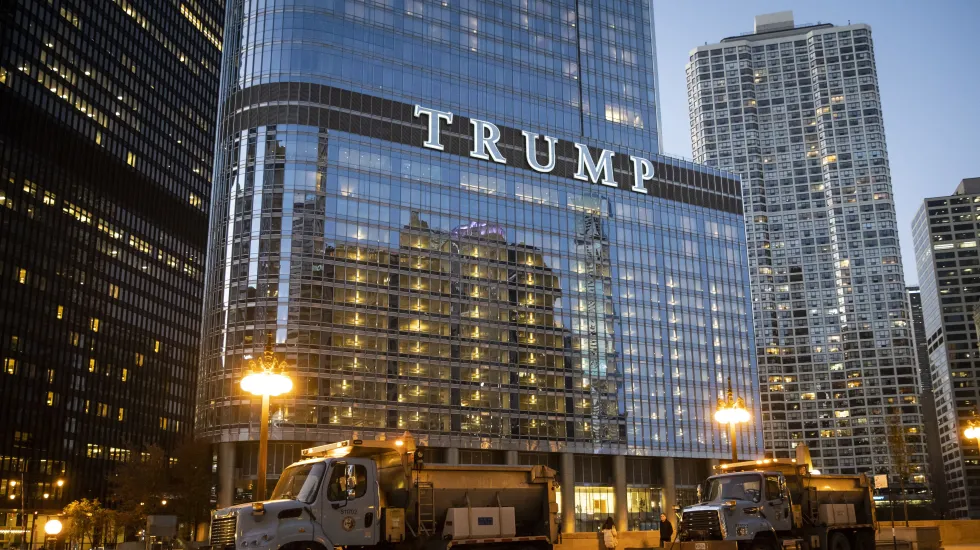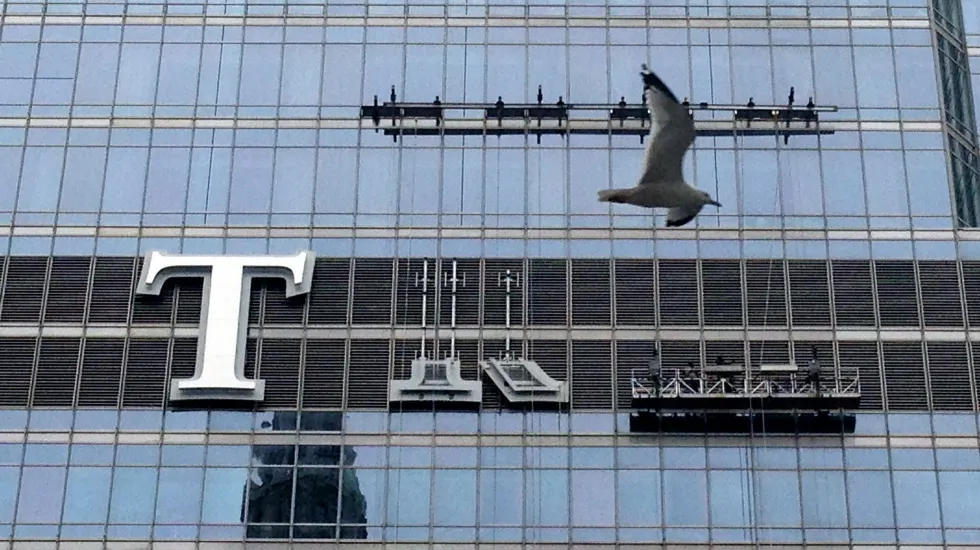
Will former President Donald Trump ever pay a price in Chicago for the role he may have played in inciting the Jan. 6, 2021 insurrection?
He will if the chairman of the City Council’s Latino Caucus has his way — and Ald. Gilbert Villegas (36th) on Monday persuaded his colleagues to take what he believes is the first step toward making that punishment happen.
At the retired Marine’s behest, the Committee on Contracting Oversight and Equity approved Villegas’ long-stalled ordinance that would prohibit any person who has been convicted of treason, sedition, related offenses, or a hate crime, from doing business with the city.
According to Villegas, that would include getting a sign permit, which means the 2,891-square-foot-sign that Trump slapped on his 96-story Trump International Hotel & Tower in Chicago would have to come down if Trump is eventually convicted.
Trump was impeached over the Capitol attack, but was not convicted by the U.S. Senate.
A U.S. House select committee is continuing its investigation of the Jan. 6 attack and has subpoenaed several of Trump’s closest aides.
A veteran of Operation Desert Shield and Desert Storm, Villegas said he still hopes that committee will ultimately produce the evidence that will lead to a Trump conviction and force Trump’s vanity sign to come down along the Chicago riverfront.
“The wheels of justice are still moving. They’re just moving slow. … The FBI is taking its time in doing investigations, in making sure that they’re thorough,” Villegas said.
“I’m hoping the January 6 committee has the ability to call the former president and that, as their investigation continues to move [forward], that they will find some evidence that he was involved in the insurrection. … I’m hoping at some point, this committee comes to a conclusion and shows those folks that are involved in this disgraceful attempt to overthrow the United States government.”
But Ald. Brendan Reilly (42nd), whose ward includes Trump tower, disagreed with his co-sponsor Villegas.
Reilly said the ordinance advanced Monday “would not impact the existing Trump sign,” but would impact the “planned development that controls” Trump Tower.
“If the Trump Organization and/or family members are indicted for fraud, treason or sedition and related offenses, they would be ineligible to do business with the city [including the ability to amend the planned development that controls their site] until final adjudication,” Reilly wrote in an email to the Sun-Times.
“That’s pretty big because [it] applies to the real estate, which is far more valuable than that massive sign.”
Whether or not Trump ever faces punishment in Chicago, Villegas argued some among the 725 people arrested for their roles in the Capitol siege may be convicted and, therefore, barred from ever doing business with the city.
And even if none of those convicted have contracts with the city, full council approval of the ordinance would make an important “moral statement.”
“It’s hypocritical to want to overthrow a government and then, at the same time, want to be at the trough of government and try to benefit from it. You can’t have it both ways,” said Villegas, who served in Operation Desert Storm and Desert Shield.
“These ordinances are moral documents. We have to stand up against hate. … We took an oath to defend the Constitution. And as a Marine, I took an oath to defend this country against all enemies foreign and domestic. And these oaths don’t have an expiration date. It’s incumbent upon us to make sure that we’re doing our job as legislators in upholding the oath that we took.”

Trump’s sign, for now, is a reminder of how he got the last laugh in the sign controversy that threatened to turn Chicago’s riverfront into a cheesy Midwest version of the Las Vegas strip.
At then-Mayor Rahm Emanuel’s behest, the City Council in 2014 agreed to turn the riverfront — from Kinzie Street all the way south to Roosevelt Road — into a sign district with restrictions similar to those shielding Michigan Avenue from visual clutter.
But the sharp limits on size, placement and make-up of future signs meant the sign on the 96-story Trump International Hotel & Tower would have far less competition for the public to see.
“This legislation is not something I’m exactly opposed to,” Trump told the Chicago Sun-Times after the ordinance was introduced.
Resolution pushes to expand contract set-asides
Also on Monday, the Committee on Contracting Oversight and Equity took the first step toward adding Middle Eastern and North African Americans to those given a leg up on city construction contracts set aside for minorities and women.
The resolution would authorize the city to conduct a study to develop the concrete evidence of past discrimination needed to justify those construction set-asides.
Once again, Villegas blamed Trump — this time for being “aggressive against” Arab Americans.
“That community was advocating to be included in the census as a segment of the population because they have a huge population. In Chicago, they’re the fourth-largest. And they’re being counted as white. They should have their own designation under the census,” he said.







